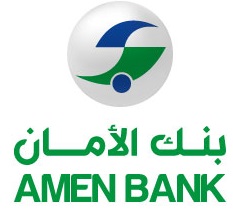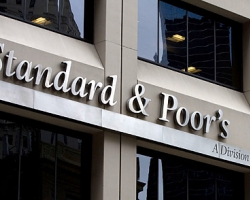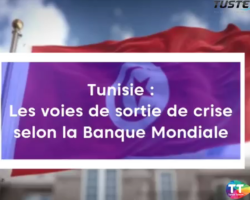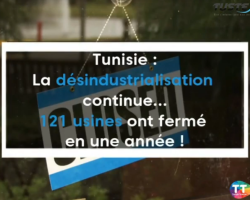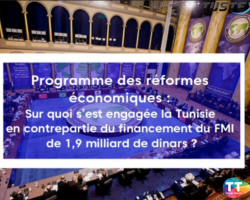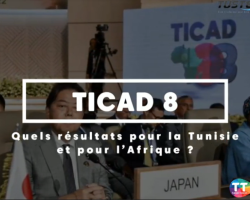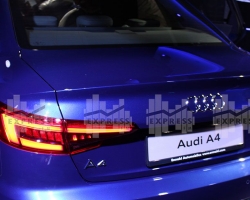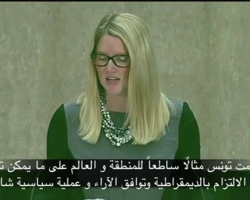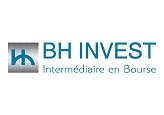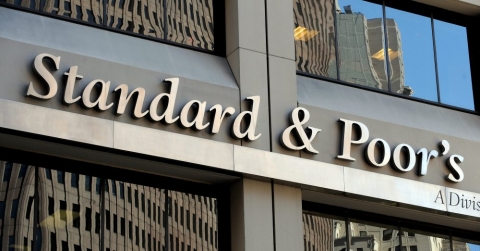
L'agence de notation Standard & Poor's qui note quatre banques Tunisiennes : la Banque de l'Habitat, l'ATB, la BTK et la BTE, a annoncé la révision du BICRA (Banking Industry Country Risk Assessment) de 8 à 9. L'échelle de notation BICRA est définie de 1 à 10, avec 1 la meilleure note de l'échelle sus-mentionnée. En parallèle, Standard and Poor's a révisé aussi la perspective d'évolution de cette notation sur les 12 prochains mois de négative à Stable.
Cette révision prend - principalement - en considération le risque géopolitique engendré par la situation en Libye et l'absence d'une majorité confortable à même d'engager les réformes nécessaires notamment celles du secteur bancaire et la recapitalisation des banques publiques (BH, STB et BNA). Rappelons que la restructuration des banques publiques est déjà budgétisée à travers les deux dernières lois de finances tunisiennes (2013 et 2014) et que des accords avec le Fonds Monétaires International - FMI, comportaient même des dates buttoirs en ce début de l'année 2015.
Pour le reste, le même communiqué insiste sur le fait que la notation des quatre banques tunisiennes (BH, ATB, BTK et BTE) notées par Standards and Poor's, a été confirmée.
- Fin.
Version anglaise du communiqué Standard And Poor's :
• We believe industry risk in Tunisia's banking system has increased due to material delays in reform implementation, including the recapitalization of public sector banks and the creation of an asset management company.
• In our view, these delays have led to a rise in market distortion, because the Tunisian central bank authorized public sector banks to continue operations despite a protracted breach of the minimum capital adequacy ratio.
• As a result, we have revised our Banking Industry Country Risk Assessment on Tunisia to group '9' from group '8'. We now view the trend on economic and industry risk in Tunisia as stable.
• We have affirmed our ratings on Tunisia-based Banque de l'Habitat, Banque Tuniso-Koweitienne, Banque de Tunisie et des Emirats, and Arab Tunisian Bank.
PARIS (Standard & Poor's) April 1, 2015--Standard & Poor's Ratings Services today affirmed its counterparty credit ratings on four Tunisian banks: Banque de l'Habitat, Banque Tuniso-Koweitienne, Banque de Tunisie et des Emirats, and Arab Tunisian Bank. The outlooks on the ratings on Banque de l'Habitat and Arab Tunisian Bank are stable. The outlooks on the ratings on Banque de Tunisie et des Emirats and Banque Tuniso-Koweitienne are negative. For a full list of the counterparty credit ratings and outlooks on these banks see "Ratings List" below.
We have revised our Banking Industry Country Risk Assessment (BICRA) on Tunisia to group '9' from group '8'. We now view the trend on economic and industry risk in Tunisia as stable. The BICRA revision reflects our view that industry risk in the Tunisian banking system has increased due to the material delays in reform implementation, including the recapitalization of public sector banks and the creation of an asset management company. These delays led us to revise our assessment of regulatory track record to "weak" from "intermediate," on par with peers such as Nigeria and Kenya. In our opinion, Tunisian regulators are more reactive than proactive. We think that the regulators have yet to exercise their authority to remedy problems regarding the recapitalization of public sector banks. Market distortions have increased, in our view, because the Tunisian central bank authorized public sector banks to continue operations despite the protracted breach of the minimum capital adequacy ratio.
In addition, we have revised our assessment of the economic risk trend to stable from negative. This revision mirrors our view of the improving operating environment following the completion of the political transition, even though some pockets of risks have not dissipated and, in particular, there is ongoing instability in Libya. We also reassessed the industry risk trend as stable compared with negative previously. This reflects our opinion that the industry risk score will remain unchanged over the next 12 months.
Although we now believe that the operating environment is more conducive for implementing banking reforms, these changes could be shaky given the current structure of the governing coalition. The affirmations of our ratings and the outlooks on Banque de l'Habitat, Banque Tuniso-Koweitienne, Banque de Tunisie et des Emirats, and Arab Tunisian Bank reflect our unchanged assessment of the stand-alone credit profiles (SACP) for these banks. These assessments take into account the lowering of the BICRA on Tunisia to group '9' and the subsequent downward revision of the anchor, the starting point for a rating, for Tunisian banks to 'b+' from 'bb-'. According to our criteria for banks with a 'b+' anchor, our assessment of capital and earnings is no longer a negative factor for the rating on Banque Tuniso-Koweitienne and Arab Tunisian Bank, while it becomes a positive rating factor for Banque de Tunisie et des Emirats. Capitalization remains a negative rating factor for Banque de l'Habitat, and we expect it to remain so even when the pending capital injection from shareholders materializes.

